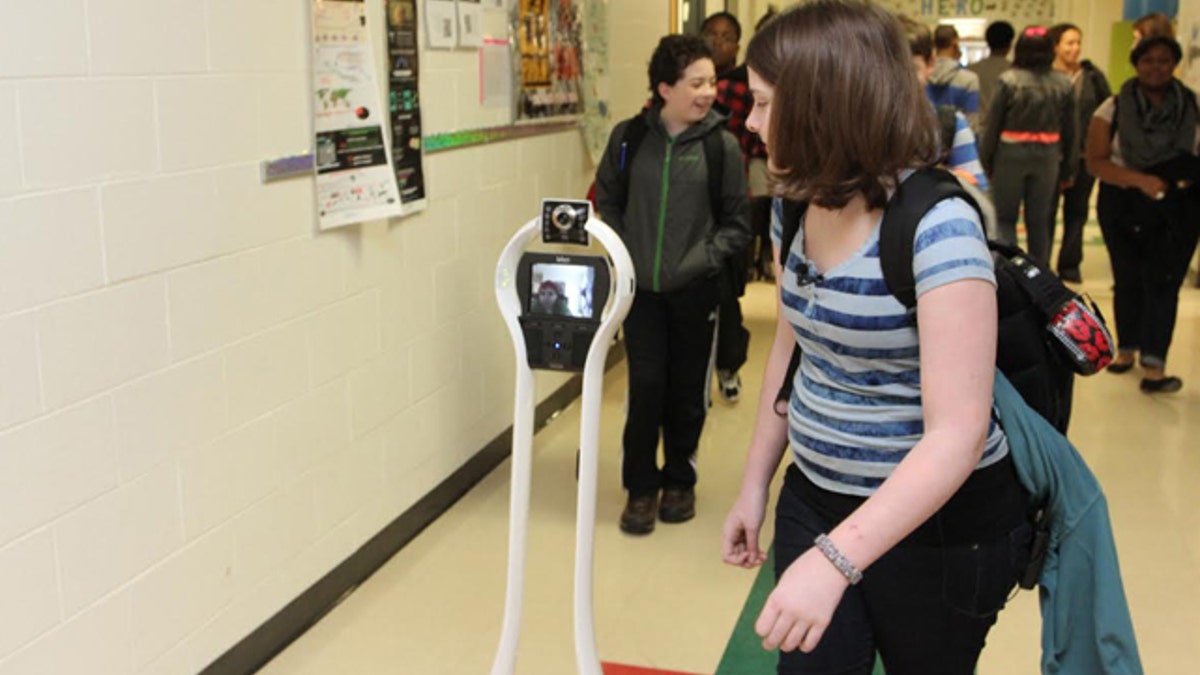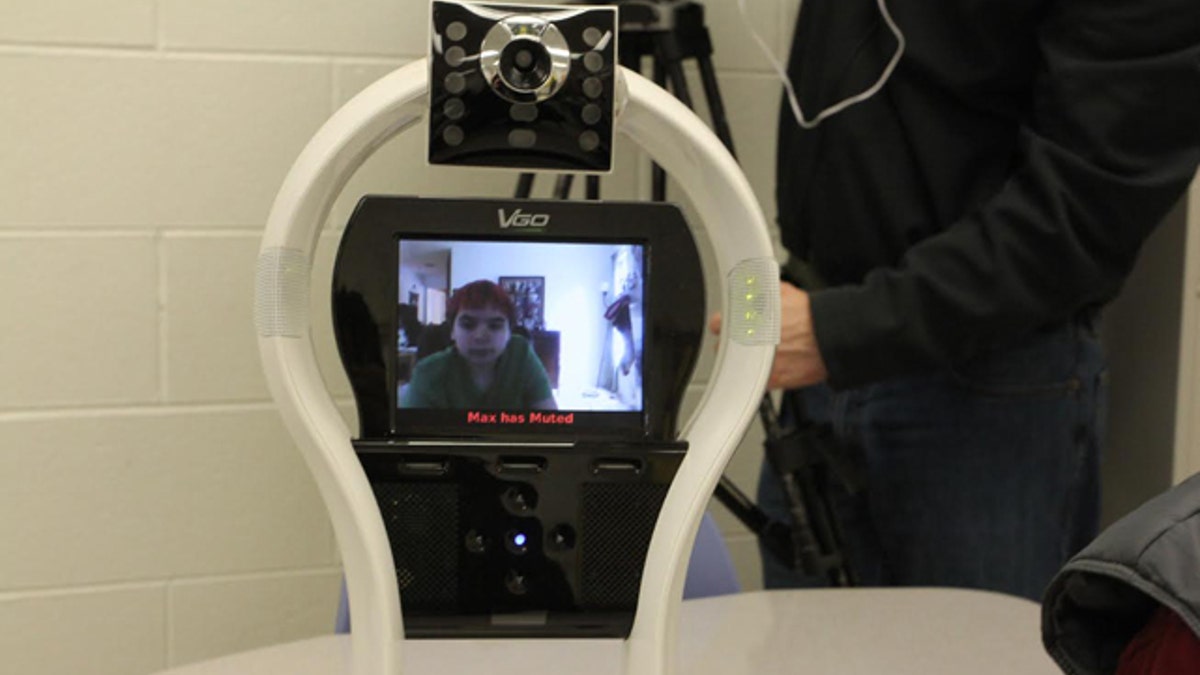
Max LaDue's robot is seen roaming the hallway of his North Carolina school with a classmate. (Durham Public Schools)
On a typical school day, seventh-grader Max LaDue answers a question from his teacher and chats with classmates at his Durham County public school. But 12-year-old Max, who suffers from a chronic gastrointestinal condition that keeps him homebound, takes part in class through a robot that he controls from his house.
The high-tech VGO Telerobot sits at Max’s desk, with a real-time image of the boy, who sits inside his Durham, N.C., home controlling the robot’s every move through his computer’s Internet. When Max has a question he’d like to answer, a light signals on the robot, prompting the teacher to call on him. When the period is over, Max is able to drive the robot from one classroom to another. The VGO Telerobot also has a camera that enables the boy to take screenshots of the classroom board, which are then downloaded to his laptop so he has class notes available when he needs them.
For a 12-year-old boy who loves to play video games, the chance to attend school via a high-tech robot is “awesome.”
“It’s pretty awesome to just be able to roam around on the robot and go from class to class instead of relying on someone to take the computer from class to class,” Max told FoxNews.com.
“I can’t stress enough how awesome this is and how lucky I am to get an opportunity to use it,” said the boy, whose favorite subject is math and who hopes one day to be an architect.
“It’s pretty awesome to just be able to roam around on the robot and go from class to class instead of relying on someone to take the computer from class to class.”
Indeed it is awesome, says Dr. Rick Lemke, principal of The DPS Hospital School at Duke University – a school for child patients run by the Durham Public School District.
“It is truly remarkable,” said Lemke, a strong advocate of the robots, three of which were purchased by the district – the first in the state to do so – for $12,000 each.
Lemke told FoxNews.com that the robots, while still in their early stages of use, have revolutionized education for students forced to be absent from school due to chronic medical conditions or recoveries from surgery.
“Our goal is to reconnect students with school so they can benefit from the in-class instruction and also the psycho-social interaction with peers,” he said.
Julie LaDue, Max’s mother, said life dramatically changed for the family when they learned their son could try using the robot. LaDue said Max has been sick since the third grade, and missed more than 100 days last year at The School for Creative Studies, a magnate school in Durham that uses a lottery-based system.
“It’s a miraculous thing,” LaDue said of the robot, which she said her son decided not to name.

Max LaDue, who is suffers from a chronic medical condition, operates a Telerobot from home so he can attend his Durham County school. (Durham Public Schools)
When a classmate suggested naming the robot, Max said, “’I’m not a robot – I’m just a sick kid,’” according to his mother.
“He really wants people to know that it’s him even though he’s using this technology instead,” LaDue said. “He’s doing better in school and he’s keeping up with his work. It’s night and day.”
She recalled Max’s first day operating the robot around the school.
“I almost cried,” she said. “When he went through the halls, kids would say, ‘Hey Max!’ Everybody knew that Max was there and Max was back.”

Max LaDue is seen working on homework from his Durham, N.C., home. (Durham County Public Schools)
Chrissy Pearson, chief communications officer for Durham Public Schools, said the district is proud to the be the first in the state to use robots in the classroom for kids unable to attend school.
“One of the things we started noticing was that there were kids who really wanted to be in school but couldn’t for medical reasons,” Pearson said. “Max is the perfect candidate for this new technology. It’s just been really inspiring to watch him.”







































